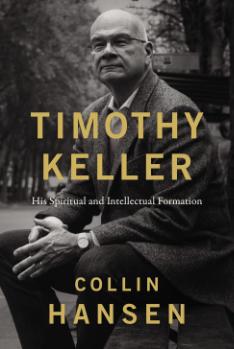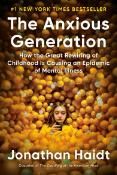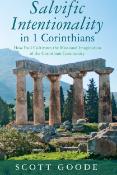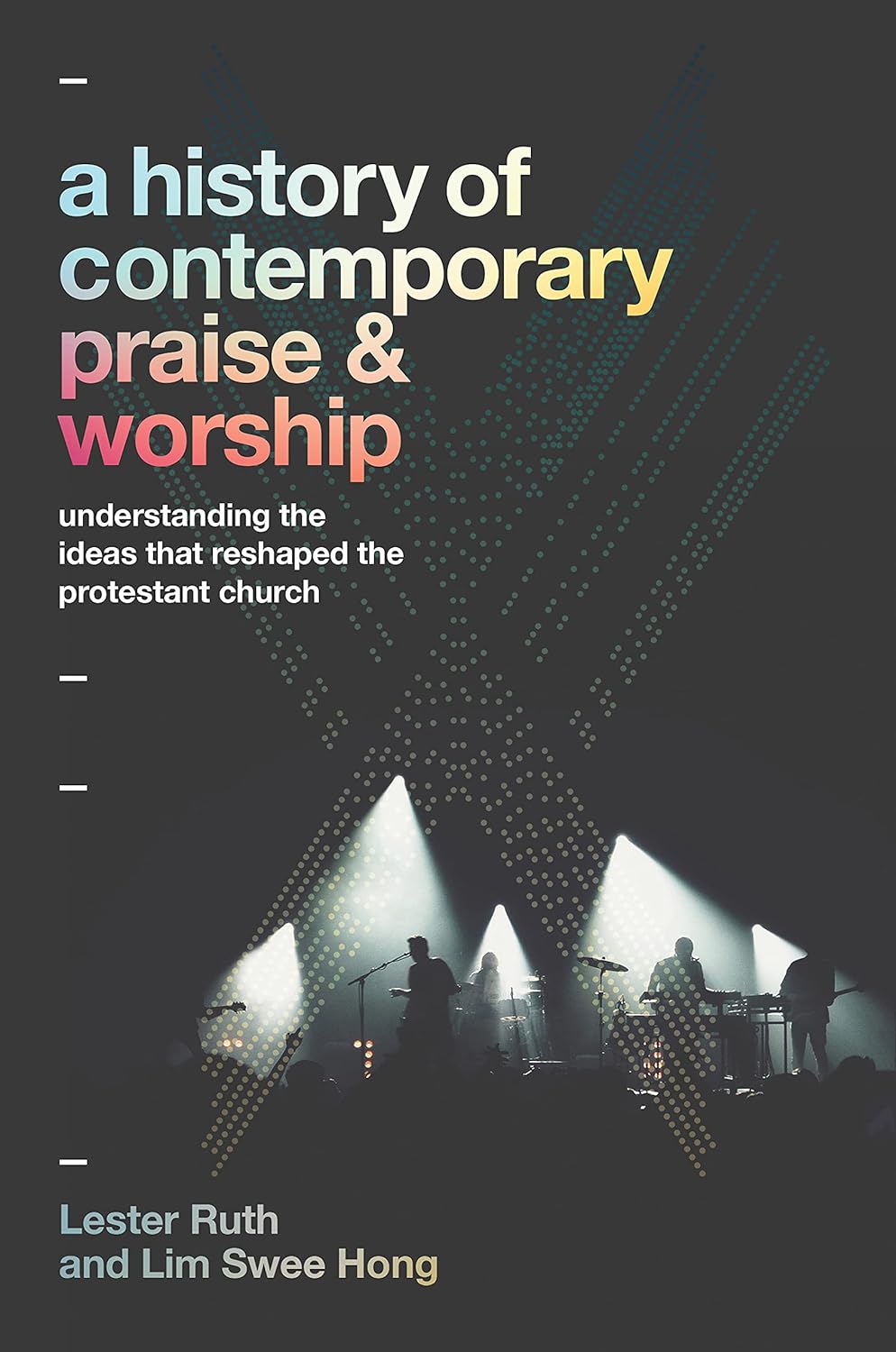Book Reviews
Book Review: The Coming of the Holy Spirit
- Details
- Written by: Matt Jacobs
The Coming of the Holy Spirit
Phillip Jensen
Matthias Media, Australia, 2022
Reviewed by Matt Jacobs
Having become a Christian as a teenager in the mid-90’s, one of the biggest debates I had to navigate was over the person and work of the Holy Spirit. Some of my Christian friends spoke about the Spirit a lot — the amazing things that happened at their churches, and the experiences they claimed to have. Other Christian friends rarely spoke about the Spirit — their focus was all on Jesus and the Bible. What stood out to me was the tension, and sometimes outright hostility between those two groups. The big questions for me weren’t just, “who is right?”, but more personally, “what if I don’t feel anything particularly ‘spiritual’ in my life? What if I don’t have ‘spiritual’ experiences… am I missing out on something? Am I not really a Christian?”
How I wish I had a book like Phillip Jensen’s The Coming of the Holy Spirit to help me at the time. Though at first it felt a little disappointing: where’s the controversy? Where are the spicy take-downs of views he disagrees with? Wisely, right in the introduction, Jensen points out that ‘these issues may be so important to us, or may loom so large in our vision, that we can’t see around them to what God has actually said to us about the Holy Spirit. We may be so intent on solving our current problems and answering our burning questions that we fail to hear what God is saying to us though his word.’ (p7). And that’s the real highlight of this book.
Jensen begins by carefully walking through Jesus’ promise of the Spirit in John 14-16, then explores the arrival and world mission of the Spirit in the book of Acts, then moves on to the work of the Spirit in the Christian life by exploring the New Testament letters. With all of that important information as a foundation, the book then turns to address many of those hot-topics, in short appendices such as ‘baptism with the Spirit’, ‘speaking in tongues’, ‘guidance’, and ‘spiritual warfare.’ The result is a surprisingly gentle, yet incredibly clear and helpful book that carefully untangles much of the controversy, and settles on the wonderful truths that God has revealed in his word.
Two particular highlights for me were Jensen’s insights on the fruit of the Spirit (chapter 21), and the contrast between the ‘unspiritual’ and the ‘spiritual’ churches (chapters 23-24).
On the fruit of the Spirit, Jensen acknowledges the temptation we might feel to skip over the things that seem mundane, onto the more ‘controversial, exciting or glamorous aspects of the Spirit’s work.’ But to skip the fruit of the Spirit is to miss the vital, transformative, and truly miraculous work the Spirit produces in every Christian life (p254). The normal Christian life of submitting to the Lord Jesus and growing in Christlikeness is fundamentally and powerfully spiritual.
This is what I needed to hear more of in my youth! In contrasting ‘spiritual’ and ‘unspiritual’ churches (Ephesus and Corinth), Jensen points out that, ‘strangely to our ears, the most ‘charismatic’ church in the New Testament is in fact the most unspiritual. The church over whom most has been written on charismatic questions in modern times was in its own time viewed by the apostle not as a beacon of spirituality, but carnality’ (p283). That’s an insight I’d never noticed before! And again, ‘In their unspiritual minds, the Corinthians failed to understand that character is more important than competence, convictions are more important than curiosities, caring for others is more important than consoling oneself, and edification is more important than experimentalism’ (p305).
In summary, The Coming of the Holy Spirit is a clear, faithful, and gentle book that aims to listen to the wonderful truths that God has revealed about the person and work of the Spirit: that He himself dwells in our hearts forever, and grows us up in the image of Christ, by his Spirit.
The Reverend Matt Jacobs is the youth minister at St Jude’s Bowral, NSW.
Book Review: Timothy Keller: His Spiritual and Intellectual Formation
- Details
- Written by: Rhys Bezzant
 Timothy Keller: His Spiritual and Intellectual Formation
Timothy Keller: His Spiritual and Intellectual Formation
COLIN HANSEN
HarperCollins Religious US, 2023
REVIEWED BY RHYS BEZZANT
God in Gotham? It wasn’t too long ago that the ideas of thriving Christian ministry and downtown New York City were poles apart. No new church had been built in Manhattan for 40 years, that is until 2012 when Redeemer Presbyterian Church opened a new building. Of course, several of its campuses scattered around the city still rent premises. Indeed, one of their plants meets in the auditorium of the New York Society for Ethical Culture, a 19th century atheist society which is happy to rent out their lecture theatre οn Sundays. But today in some circles, New York has become synonymous with refreshed ways of engaging post-Christian culture. If it is possible there, it is possible anywhere. The leadership provided by Tim Keller at Redeemer in NYC has been game changing.
In his recently published biography, Collin Hansen has written a magnificent survey not essentially of Keller’s life but of the intellectual and spiritual influences which profoundly shaped him. It was truly absorbing. We learn about his education, mentors, and capacious reading. These took a bookish undergraduate, who grew up in a legalistic Christian home, and made of him a leading apologist, evangelist, and pastor in the later 20th and early 21st century. To be honest, I was sceptical of the project to publish a biography not a year after Keller’s death from pancreatic cancer in 2023. But it succeeds brilliantly because of its modest aspirations. A journalist, Hansen’s prose was crisp, the chapter and section divisions roughly following Keller’s career were helpfully focused, and his conclusions judicious. A full-scale biography awaits.
Keller became a Christian and cut his teeth in student ministry with the Inter-Varsity Fellowship at Bucknell University in Pennsylvania during the late and turbulent 1960s. He trained for the ministry at Gordon-Conwell in Massachusetts, not long after the amalgamation of the two schools (incidentally led by former Ridley principal Stuart Barton Babbage). Perhaps surprisingly, he then took up a Presbyterian pastorate in a working-class town, Hopewell, Virginia, whose claim to fame was advertised on its road sign: “Welcome to Hopewell, chemical capital of the South.” His professorial style was successfully matched to a social demographic hungry to know the Scriptures. He learnt how to communicate in new ways. He was subsequently called to teach preaching at Westminster Seminary in Philadelphia, after which he took up the reigns of a church plant in Manhattan in 1989, and stayed there for the remainder of his ministry life. His impact in Australia has been significant, for the church-planting organisation City to City was his brainchild.
Hansen does well not just to name the thinkers who have influenced Keller, but also summarises their theological commitments and outlines the story of their intellectual transmission. Keller’s legalism was transformed by reading Luther on the nature of grace, and he read the Puritans voraciously to discover how they understood the dynamics of the spiritual life. One of his most significant theological interlocutors has been Jonathan Edwards, 18th century pastor in Massachusetts whose project was to present the Christian faith using the category of beauty and thereby to address the human head, and heart, and hands together. In our fragmented world, this vision of harmony has proved particularly useful in Keller’s engagement with culture.
After his wife Kathy introduced him to the writings of the Inklings, Keller lived in the worlds of Narnia and of the Rings. These fuelled his commitment to the imagination as a strategy to renew society, and to refresh the church’s engagement with the cities of this world around it. Indeed, Kathy had a correspondence with CS Lewis from when she was a young girl! Many lecturers impacted Keller, for example Ed Clowney, Elisabeth Elliot, Richard Lovelace, and RC Sproul. His early Arminian sentiments were replaced with more self-consciously Reformed commitments during his theological education. In later life, he became friends with sociologist James Davison Hunter at the University of Virginia, with whom he investigated how any social movement might make an impact in the late modern world. The answer: networks. Keller was good at this.
His theological style was irenic and coalition building. No wonder he helped found the Gospel Coalition. His extraordinary church-planting and church health manual, Center Church, amply demonstrates his spiritual and ecclesiological vision. He wanted to join doctrinal clarity, personal piety, and cultural engagement, which together would shape the church’s witness and outreach. His theoretical and practical approach to diaconal ministries, in Hopewell or in Manhattan, was a significant element in his missional thinking. Of course, Keller’s prodigious output in publications is matched by his homiletical legacy. He did not set out to be a megachurch pastor, but perhaps that is at the heart of his success. He glories in the gospel of Jesus Christ, which “provides a nonoppressive absolute truth, one that provides a norm outside of ourselves as the way to escape relativism and selfish individualism, yet one that cannot be used to oppress others” (p250). We need the insights Keller gleaned from his reflection.
This was first published in The Melbourne Anglicans
The Reverend Canon Dr Rhys Bezzant is senior lecturer in Church History and dean of the Anglican Institute at Ridley College Melbourne and has recently been announced as the new Principal of Ridley College from 2025.
Book Review: The Anxious Generation
- Details
- Written by: Mark Short
 Jonathan Haidt: The Anxious Generation: How the Great Rewiring of Childhood Is Causing an Epidemic of Mental Illness
Jonathan Haidt: The Anxious Generation: How the Great Rewiring of Childhood Is Causing an Epidemic of Mental Illness
JONATHAN HAIDT
Penguin/Allen Lane 2024
REVIEWED BY MARK SHORT
American social psychologist Jonathan Haidt is best known for exploring the factors which contribute to the tensions and complexities of modern life. In The Righteous Mind he considered how moral disagreements arise not simply from contested facts but from diverse intuitions that go to the very nature of morality itself. In The Coddling of the American Mind (co-written with Greg Lukianoff) he lamented the rise of political polarisation and cancel in US universities.
His new book documents the alarming rise in mental illness amongst teenagers and young adults since 2010, especially females. Haidt contends that the blame lies with the deleterious impact of social media, with a secondary explanation being the continuation of overlyprotective parenting which has unnecessarily limited young people’s interaction with the physical world. “My central claim in this book is that these two trends – overprotection in the real world and underprotection in the virtual world – are the major reasons why children born after 1995 have become the anxious generation” p9 So why 2010? The internet and to some extent social media had been present before that date. However Haidt points to a number of innovations around that date which increased both the attractiveness of social media and its potential to be used as a means of social comparison. These included the introduction of the ‘like’ and ‘retweet’ buttons and the addition of a front-facing camera to smartphones, which is ideal for taking ‘selfies’. And why has the impact being worse on boys than girls?
Haidt points to girls’ higher vulnerability to social comparison and relational aggression, both of which are magnified by social media. For boys, the impacts tend to be different, and are seen in a tendency to withdraw from in-person engagement in favour of online gaming and pornography.
Since its release Haidt’s book has received much publicity and generally positive reviews. Where there has been pushback critics have argued that Haidt has confused correlation (increased use of social media coincided with deterioration in teen mental health) with causation (social media is responsible for the deterioration). Haidt is aware of this critique and responds by pointing to some experimental data and to the absence of any plausible explanation as to why mental health declined this much at this time.
There is of course a long history of blaming technological change for the problems of youth. It happened with Y and the internet; perhaps with the printing press as well. Nevertheless there is something about technology that simultaneously expresses our vocation as divine image bearers and our fallen-ness as sinful rebels. In his book The Life We’re Looking For Andy Crouch compares the promise of technology to the lure of alchemy – the aspiration for powers that would allow us to take the place of God. So the smartphone offers the promise of omnipresence and omniscience, but extracts a heavy price for this supposed privilege.
What is to be done about all this? Haidt makes a number of recommendations to legislators, parents and schools including raising the age of access to social media to 16 and developing schools that are both phone-free and conducive to unstructured unsupervised play. There is much wisdom here.
Of particular interest is a chapter called ‘Spiritual Elevation and Degradation’ where Haidt, who selfdescribes as a secular Jew, explores the potential of spiritual practices to elevate human well-being. These practices include shared embodied rituals, stillness and finding awe and nature. Haidt even references Pascal’s God-Shaped Hole, although he locates its origins in biological and cultural evolution rather than any divine design. “There is a hole, an emptiness in us all, that we strive to fill. If it doesn’t get filled with something noble and elevated, modern society will quickly pump it full of garbage. That has been true since the beginning of the age of mass media, but the garbage pump got 100 times more powerful in the 2010s.” p216
One must ask whether these spiritual practices and the promise they offer can ultimately be sustained in the absence of a commitment to divine design. Digital technology after all is thoroughly designed to enlist us as online consumers in the world of late modern capitalism.
Any resistance must begin with the conviction that we are created to know and be known rather than consume. As the Psalmist’s ancient wisdom reminds us “For you created my inmost being; you knit me together in my mother’s womb. I praise you because I am fearfully and wonderfully made; your works are wonderful, I know that full well.” (Psalm 139:13-14. NIV)
Bishop Mark Short is Bishop of Canberra and Goulburn.
Book:review: Salvific Intentionality in 1 Corinthians
- Details
- Written by: Chris Porter
 Salvific Intentionality in 1 Corinthians: How Paul Cultivates the Missional Imagination of the Corinthian Community
Salvific Intentionality in 1 Corinthians: How Paul Cultivates the Missional Imagination of the Corinthian Community
SCOTT GOODE author and publisher
REVIEWED BY CHRIS PORTER
It is often noted that for all the emphasis which the Apostle Paul places upon evangelism in the book of Acts and the narration of his own endeavours, he seems to not have the same expectations for the audiences of his epistles. In this short and accessible volume Scott Goode draws on this apparent “riddle” of evangelistic outreach in the Pauline epistles, and places it centre stage. Taking his cues from a close reading of 1 Corinthians he helpfully examines the missional hermeneutics within the letter, and ties these with the social identity of the Corinthian church under the broad banner of “salvific intentionality.” Here he reads salvation as directed towards “two distinct, yet related, directions,” (6) first, a vertical salvation “action of God towards humanity through the eschatological Christ event (7), and second, a horizontal aspect of “convey[ing] salvific influence towards one another and outsiders” (8). It is the interplay of these two aspects which Goode explores throughout the work.
In the first chapter Goode examines the challenge of moral formation within 1 Corinthians 5:1–8 and sets it within the context of the social identity—including theological aspects—of the Corinthian church. This chapter sets up the complexity of social and theological relations for the nascent church, and Goode provides a reasonably detailed and cogent examination of the challenges therein. While it could always be expanded, this foundational work sets him up well for the investigation at hand. The second chapter works from the social identity constructs at hand and examines the challenge inherent within mixed marriages in 7:12–16.
Here Goode argues that the believing partner may have significant salvific impact on an unbelieving partner through a “theological vision to strengthen their marital commitment” (36). But Goode is not blind to the challenges of imbalanced relationships, and cultural power imbalances inherent within first century patriarchal social settings. Rather, it is his attention to the mess present within these expressed social identities that demonstrates the compelling nature of the salvific intentionality he identifies as “worked out in the concrete social reality of first-century marriage, particularly for women” (43).
The third chapter, through the lengthy exposition on 8:1– 11:1, significantly expands on the prior vignette by throwing the doors open to the street, and considering how ethics of accommodation can generate missional opportunities for the believing community with their pagan neighbours. Goode carefully—and helpfully— navigates a fine line in his treatment of the “weak” and “strong” passages, taking seriously the nature of sectarian impulses towards fleeing from idol-food, while equally recognising Paul’s salvific commitment within his accommodation ethic that “seeks the salvific welfare of others” (56). Ultimately concluding that “the mission of the believing community cannot be limited to those of insider identity only. The mission of Christ has incorporated the Corinthians, although they were once outsiders” (69). The verticality of salvation has temporal impact in the horizontal space.
The fourth chapter considers the nature of worship within the community (14:20–25), and Paul’s assumption that outsiders may be present within the gatherings of the Corinthian church, and this should govern the activities of the church. From a detailed discussion of tongues in 1 Cor 14, against the background of Isaiah, Goode then considers how this would spill over into the socioreligious nature of worship settings, suggesting that speech modes in the community should be “directed towards the salvific welfare of outsiders” (97).
Finally, Goode turns his attention to the nature of missional identity and salvific intentionality “then and now” (98). Although the argument that church communities should be oriented towards a missional identity—even as missional communities—has been regularly made, Goode helpfully highlights the messiness of such a missional identity. This “untidy sociotheological profile” (99) that he reads throughout the first Corinthian epistle emphasises the wrestling of the Corinthian’s with their own Christian identity. It is this wrestling that Goode seeks to apply as a salve to the modern church, highlighting that the Corinthian social identity is not so different from our present embodiment. Of critical note here is his section on “soft difference in ecclesial boundaries” proposing that “Paul imagines the community in Corinth not simply as a place of purity but one of ‘spiritual formation’” (111). Here Goode aptly observes that this untidy reality challenges contemporary expressions of community, and his diagnosis of requiring a “socially open community” to “serve the salvific welfare of outsiders as well as insiders” (112-3) is a message that is sorely needed.
While Goode originally penned this work as an evolution of his MTh dissertation, he is to be well commended for his balance of academic rigour and pastoral readability. The book is firmly anchored within a scholarly foundation in social identity theory and missional hermeneutics yet is eminently readable and his insights spring easily from the page to the parish. This is recommended reading for anyone considering how to balance the challenge of an inward looking congregation for the edification of the comfortable with an outward salvifically intentional church on God’s mission field.
Rev Dr Chris Porter is Post-Doctoral Research Fellow at Trinity College Theological School.
Book Review: A History of Contemporary Praise and Worship:
- Details
- Written by: Rhys Bezzant
 A History of Contemporary Praise and Worship: Understanding the Ideas that Reshaped the Protestant Church
A History of Contemporary Praise and Worship: Understanding the Ideas that Reshaped the Protestant Church
Lester Ruth and Lim Swee Hong
Grand Rapids: Baker Academic, 2021
Reading this book was like listening to the soundtrack of my earliest years as a Christian in the 1970s. It tells the story of the rise and development of contemporary praise and worship – some of it much earlier than the decade of my conversion! – with lots of quotations from songs, and references to their composers or publishers. But recounting this story is not just about listing choruses. In the hands of Ruth and Hong, we discover the social and the theological pressures which generated a twentieth-century revolution in both musical performance and song-writing. Their focus is on the United States, but their analysis holds good for Australia as well. The authors are professors in the field of Christian worship, so this book was the result of painstaking research – mainly through personal interviews – over many years. Contemporary Christian music has deep and complicated roots.
Read more: Book Review: A History of Contemporary Praise and Worship:
